Hosted by Claire Musters: This month I’m reading… The Marriage Monitoring Aunties’ Association
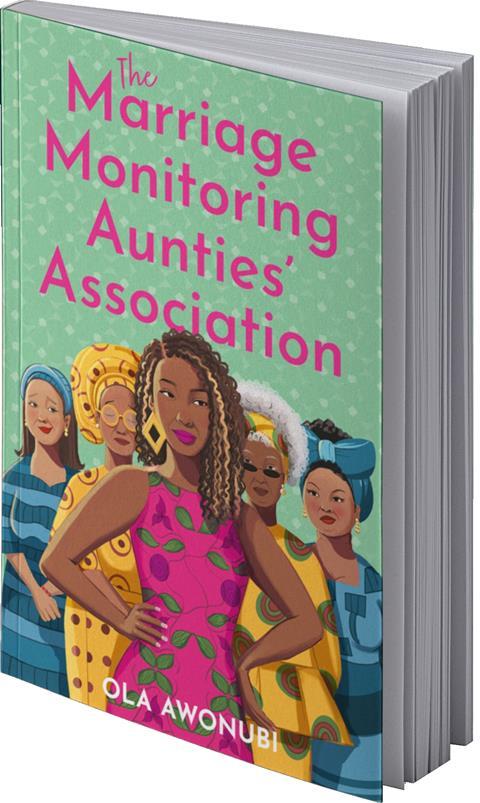
This month I’m reading…
The Marriage Monitoring Aunties’ Association
By Ola Awonubi (One More Chapter, HarperCollins, 978-0008703301)
This romance novel follows 50-year-old Sade Sodipo, a successful Nigerian woman who happens to still be single. She has a fantastic life, thoroughly enjoys her job, owns her own home and has supportive, close friends, but is still searching for the ‘one’. This, of course, is encouraged wholeheartedly by her mum, friends, younger sister and those in the unofficial ‘Marriage Monitoring Aunties’ Association’, a ‘made up’ group Sade refers to that mainly consists of relatives and women in her and her mum’s churches.
With wit and disarming honesty, Sade’s story will resonate with anyone who has been single for any length of time and found those around them pressurising them to get into a relationship. The culture of Sade’s Nigerian community really comes alive too and, through all the humour, the author still manages to make a strong point about how invasive and personal the remarks from well-meaning people can be. While the love of the tight-knitted, supportive community shines through, so does the huge cultural expectations and outrageously outspoken advice!
I am neither single or Nigerian but am over 50 and recognised similar anecdotes to those my church Nigerian friends have shared with me over the years. This is a thoroughly believable and gripping story that I was soon engrossed in. I loved all the drama!
You have written various books and short stories before – what inspired this book?
I’m inspired by my own life as a mature, single, Nigerian, firstborn daughter. Some of the scenarios are things that I and others on this singleness journey have experienced. I was inspired by their desire to stay sane and relevant in a church that caters more for families than it does the singles who are part of the church ‘family’ and I wrote it because the characters spoke to me and said: “Tell them about us: tell the aunties from all cultures, tell the pastors about the women crying inside and serving while dying from the loss of hope, tell the men that we love them and still want marriage and motherhood (for those who it is still possible for) but that they need to grow up into who Christ wants them to be.”
Just like Sade, many Christian women keep this inside them, but it’s worth airing it – and where better than in fiction!
The book centres around Sade’s family, friends and church – what do you want church leaders and congregations to know about the pressure so many singles are put under by their church and community?
The Church is a family. I believe singles want to be treated as part of that family, not as a problem that refuses to be solved. The ‘singles’ fellowships’ need to be less performative (just a tick box exercise) and more restorative and inspirational.
Most single Christians are very conscious of being treated like people who don’t quite measure up to the church ideal of marriage with children. Since our saviour was single, whose image/profile are we trying to get single people to emulate?
You bring out the well-known fact that there are so many more women than men within the Church – but also that it is the single women who get the pressure and awkward questions from others, not the men. Why do you think that is?
There are various reasons for this:
The weight of tradition - many churches, especially those steeped in cultural traditions, continue to place a heavy emphasis on marriage and motherhood as a woman’s ultimate role or purpose. In contrast, single men are often allowed more social leeway – as if they’re ‘on the journey’ or ‘just focusing on their calling’.
The visibility factor - single women tend to be more active and visible in church life – volunteering, organising, attending women’s fellowships – which ironically makes them more exposed to scrutiny. Men may participate less visibly, and when they do, they’re not expected to explain their status or ‘lack of progress’.
Gendered expectations - there’s often the implicit idea that a woman’s worth is tied to relational status, while a man’s value can rest on his job, leadership, work or ministry. People rarely ask a 35-year-old single man why he isn’t married, but a woman of the same age may hear it weekly. A 35-year-old single man will be described as distinguished, mature and a sliver fox and a woman of the same age will be described as ‘past her prime’, ‘mutton dressed as lamb’ or a ‘bit long in the tooth’. These are ways society and media classify women according to their season of life.
The emotional cost - many women quietly carry grief and disappointment beneath their smiles and service, as I highlighted in The Marriage Monitoring Aunties’ Association. The real pressure is the invisibility of their pain – and how they mask it under ramped-up service in church, attaining high-profile jobs, going on expensive round-the-world trips or shopping sprees or even sometimes overeating to dull the pain, which in some ways opens the doors to mental, emotional and physical issues – some of which Sade deals with in the book.
The faith of Sade and other characters comes out naturally in the story – is that something that you do in all your writing? And why did you intentionally include someone who had really struggled with their faith in this story?
I write for both the secular and Christian market. This is the third book with Christian themes but at the same time written for the wider market, which my publishers have allowed me to explore. I intentionally included a person who really struggled with faith because I knew there are so many women out there struggling with the difference between what they think life should be and the reality they live and it was an intriguing premise to write about. The whole idea of someone going through the motions while inside questioning all they have been brought up to believe lent itself to a nuanced, interesting main character.
Towards the end of the story, one of Sade’s Aunties says to her: “Don’t believe all this strong face Nigerian women wear for the world. We are tired of trying to be strong and dying inside” – could you unpack that sentence a little for us here?
Growing up in Nigeria I saw the women I knew both closely or from afar struggling with different issues with health, in laws, mental and emotional issues, abuse, poverty, insecurity, singleness, marriage, finances and outwardly seeming to keep it together. This is because you are trained in my language of Yoruba: “Obinrin lo ni ile”, which means the woman owns the house. You own your house by getting on with it, by maintaining the façade so that no one knows what is going on behind closed doors or the impassive look on your face. Which is why I used the phrase “strong face”, which is something a lot of us are brought up to do. The silent training passed down is that it is our duty as a woman to ensure that we don’t shame the family, talk about historical or current issues that might be eating us up inside and that we cover our families and, if married, husbands in prayer and wink at imbalances, faults or serious issues that could lead to future problems.
Ola Awonubi on: The books that have changed my life
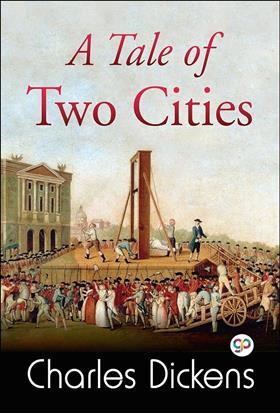
A Tale of Two Cities by Charles Dickens
I admire how Dickens uses historical fiction not just to recount events, but to interrogate justice, identity and the cost of revolution. It’s storytelling with a purpose to make you realise that the universal story of what drives us – love, jealousy, revenge, honour, fear is still what produces literature that stays with readers. It’s a tale that reminds us that even in turbulent times, individuals can choose grace, courage and selflessness. That message resonates deeply with me as both a reader and a writer.
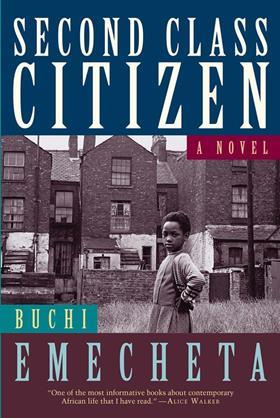
Second Class Citizen by Buchi Emecheta
This story of how a single parent of Nigerian heritage with four children faced the poverty and racism of 1970s London reminded me of what it was like growing up as children of immigrants at the same time, and made me appreciative of the sacrifices my parents made for me and my siblings to have the life we have now.
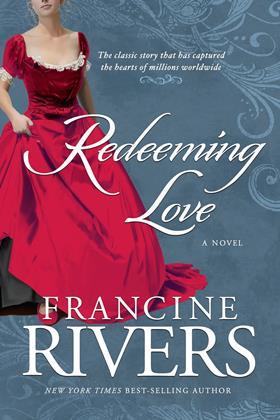
Redeeming Love by Francine Rivers
Micheal Hosea, the unrelentless and much sinned-against lover of Angel, brought home Christ’s all encompassing, compassionate, patient and forgiving love. It made me appreciate even more fully the sacrifice Jesus made for his Church, even when we want to go off and do our own thing. He remains ever loving, ever forgiving and ever ready to embrace us with our faults and imperfections.












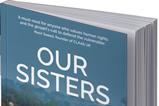




















No comments yet